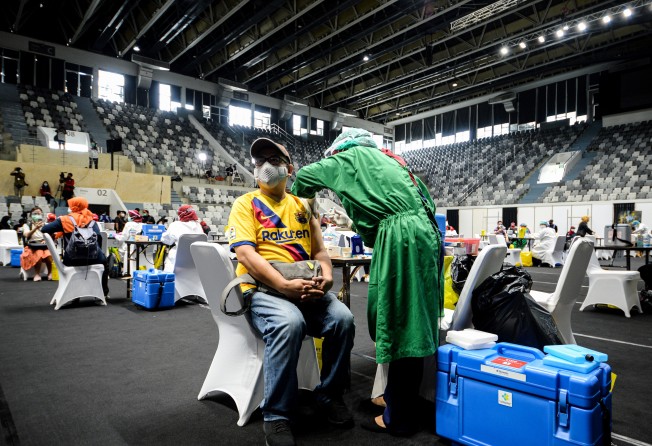China’s Covid vaccines: Hong Kong needs to keep an open mind
- The same respect and recognition should be given to research from all countries, including the one that Hong Kong belongs to

Hong Kong’s Department of Health has announced the procurement of three Covid-19 vaccines – from Fosun, AstraZeneca and Sinovac. The Pfizer-BioNTech vaccine supplied by Fosun has been approved for emergency use, while the decision on CoronaVac from Sinovac is still pending as authorities await the provision of some additional data, ignoring the fact that CoronaVac has been approved by many countries including Brazil, Indonesia and Turkey where clinical trials were performed.
We should note that even published Phase 3 data is not foolproof, and approved drugs have been revoked due to lack of efficacy on follow-up studies.
Initial research on arsenic trioxide was first done in China and subsequently Arsenol, or oral arsenic trioxide, was developed in Hong Kong for use by leukaemia patients, as an affordable alternative for the expensive US-patented drug Trisenox. Arsenol was never approved in the US.
One cannot help but wonder whether the approval or non-approval of drugs is compromised by political and financial considerations. This is a serious deviation from public expectations that the licensing of a drug should depend on only its efficacy, safety and potential benefits.
In the current political climate, Chinese-developed drugs will face increasing difficulties in getting approval in the US or European Union.
Pharmacogenetics explains the different responses to the same drug in patients from different ethnic groups. Drugs that are effective for patients from a certain ethnic group may not work for others. Since most Hong Kong people are ethnic Chinese, experience and drug research in China is definitely relevant to Hong Kong.
At the HKU-Shenzhen Hospital, oncologists have the good fortune to be able to use Chinese-developed medicines such as pyrotinib and anlotinib for breast and lung cancer patients, including those from Hong Kong, and obvious benefits are seen.
The “one country, two systems” rule should be abided by, and Hong Kong should have an independent drug licensing system. But for patients’ benefit, the criteria of drug approval should be based on clinical data and the same respect and recognition should be given to research from all countries, including the one that Hong Kong belongs to – China.
I hope the health authorities can be more open-minded so that Hong Kong people will not be deprived of choices, including Chinese vaccines from Sinovac or Sinopharm, when the supplies of the vaccine from Fosun and AstraZeneza are not guaranteed.
Dr Victor Hsue, consultant oncologist, Hong Kong University-Shenzhen Hospital